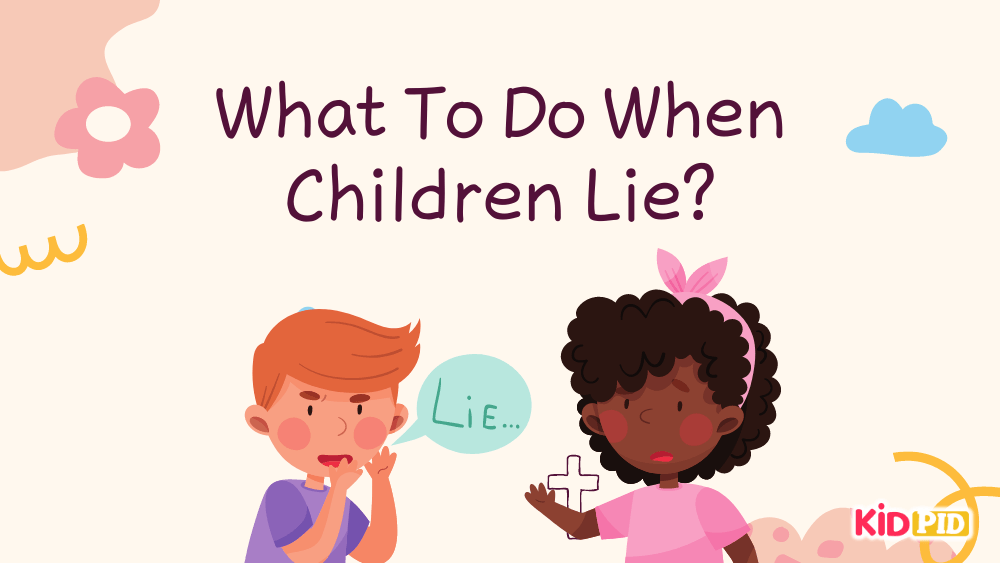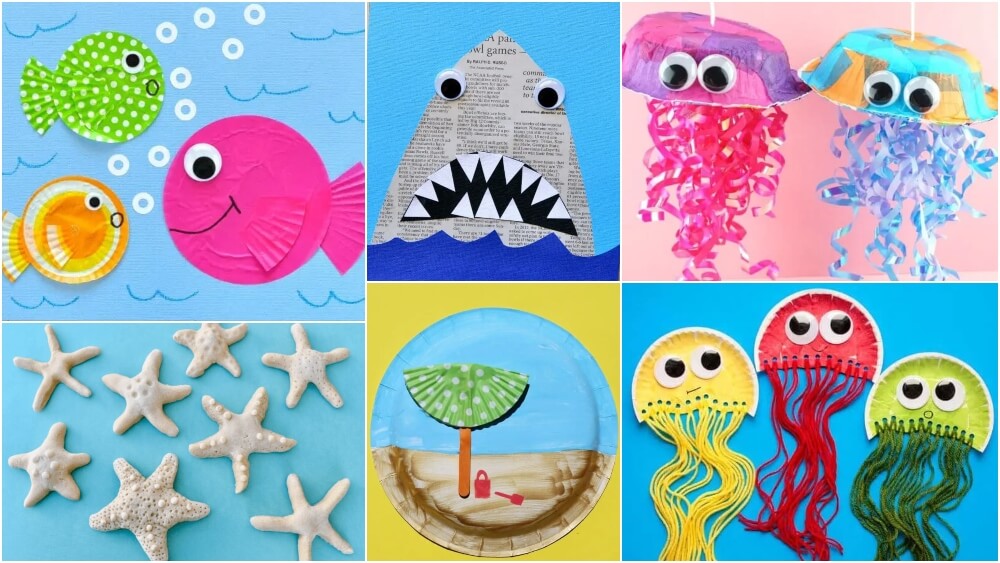What To Do When Children Lie?

Since lying is sometimes prevalent among children and adults, it’s generally not a reason for concern. However, lying may become a serious issue if it happens frequently. One significant problem is that if your child has a history of lying, you might not believe them when they speak the truth. But on the other hand, instilling in your child the virtue of telling the truth fosters the value of self-reliance, trust, and compassion.
Kids start lying from a young age for various covert and prosocial goals, getting more sophisticated as they age. When children learn that lying is a reliable strategy to avoid difficulties or responsibility, it can develop into a dangerous habit. Therefore, when your child lies, confront the situation directly and try to prevent it from happening again.
Contents
What To Do When Children Lie?
Distinguish the type of lies
When dealing with smaller kids, the first thing is to see whether they can identify the difference between reality and their imagination.
Children may not understand the difference between their fantasies and reality.
Respect them and assist them in setting things right
When you learn a falsehood is being told, inform your youngster gently that you are aware of it. Do not participate in a fight for dominance. Avoid using accusing words or tone. When you speak unpleasantly, kids may often dismiss what you are saying. Instead, ask them to set things right if they have done anything incorrectly. It can be apologies, make-up assignments, or repairs. Give them another opportunity to act morally.
Make it a household rule, to tell the truth
Create a specific home rule that emphasizes the significance of honesty and truthful communication as part of your family’s rules and values. This will ensure that your kids know how important the truth is to you, even when it’s difficult to tell. Discuss the many types of falsehoods and the harm that each one may do. Describe the numerous justifications for lying and why you value truthfulness.
Do not punish
You could be taken aback by this move. After all, punishment is a common method of discipline. You are penalized for making a mistake. It makes sense. Avoiding punishment is an external motivator. An internal motivator is a desire to carry out the correct thing. The outcomes of internal motivation cannot be compared to those of external incentive. Children from punishing environments lied more than those from non-punishing ones in the temptation resistance experiment. Nobody with a rational mind would want to receive such punishment. Naturally, a youngster would lie if they believe they might face punishment for speaking the truth. It’s in your nature to want to defend yourself. Therefore, cease using punishment as a consequence if you don’t want your child to lie and want them to become internally motivated to speak the truth. It does not imply that you should overlook their errors. As was previously said, you must confront it and offer them a chance to make things right.
The ideal honesty
According to a study, most adults acknowledge lying to their children. They may lie to them to influence a child’s conduct, get their cooperation, or manage their emotions. Sometimes people will lie because it is simpler than providing a precise yet challenging answer. Children learn through imitating adults and by modeling. By witnessing their parents lie, children might learn or encourage lying behavior. According to the temptation resistance paradigm, a school-aged youngster who was lied to was likelier to lie and peek than one who wasn’t. Parents teach their kids what is and isn’t appropriate conduct. Set a positive example for them by acting similarly.Set an example by acting in a way your child will imitate, including always being honest. Little white falsehoods can’t be distinguished from other lies by children. Please don’t pretend to be sick to get out of a social engagement you don’t want to go to, and don’t lie about your child’s age to get them a cheaper meal at a restaurant. Your youngster will copy anything they see you doing.
Instruct human values
Children’s moral assessment of lying and their tendency to tell falsehoods are connected.
Lies are less likely to be told by those who appreciate the truth. They have an innate drive, to be honest. Children should be taught the advantages of being honest. Even if you’ve erred, stating the truth makes you feel good since you’re acting morally. By accepting responsibility, you are not running away. However, acting dishonestly makes you feel guilty since you lie to someone. It may result in issues or harm to others. Falsehoods can also be followed by subsequent lies covering up the first.
Offer a Warning
Give them one warning when you are reasonably certain that you have exposed children to a falsehood. Say, “I’ll give you one more chance to tell me the truth,” for instance, calmly. If I find out you’re lying, there will be additional consequences. Reiterating the consequences of dishonesty is also beneficial. Instead of blaming or humiliating your child, concentrate on teaching them responsibility and honesty. Maintaining a gentle and caring demeanor is also beneficial. Your youngster won’t feel as comfortable telling the truth if you are angry, belligerent, or threatening.
Obtain their trust so you may tell them the truth
Likely, your child won’t feel comfortable confiding in you about their errors or humiliating times if you and your child don’t get along well or if you are overly severe when they make a mistake. Additionally, you must be tolerant of your child’s mistakes and refrain from being very angry or offended by them (though this is not always possible). If not, they will work harder to keep the truth from you the next time. Be understanding of them and assure your youngster that being truthful won’t result in punishment. The youngster may tighten their shell and lie more if you address them harshly. It becomes simpler for them to lie more frequently.
Add Another Consequence
If you discover your child is lying, punish them further. For instance, assign them additional responsibilities in addition to simply removing their gadgets for the day. As a punishment for lying, take away privileges and utilize reparations. Make sure the punishment is fitting and just. Defy the urge to impose harsh penalties. If you punish harshly or tend to overreact, your child may not be as focused on their wrongdoing as they should be. Instead, they may concentrate on how unjust their parents are.
Get kids to make promises
A study found that lying decreased when children were asked to swear to speak the truth after learning the difference between lies and the truth with the researchers. When minors are asked to testify, courts follow a similar procedure. They think it helps spread the truth.
- Children can learn the value of honesty at a young age.
- There is more to the option between punishment and no punishment than merely lying or not lying.
- The difference is that raising a child who tries to do the right thing is as opposed to one who merely attempts to avoid difficulty or avoid detection.






Responses